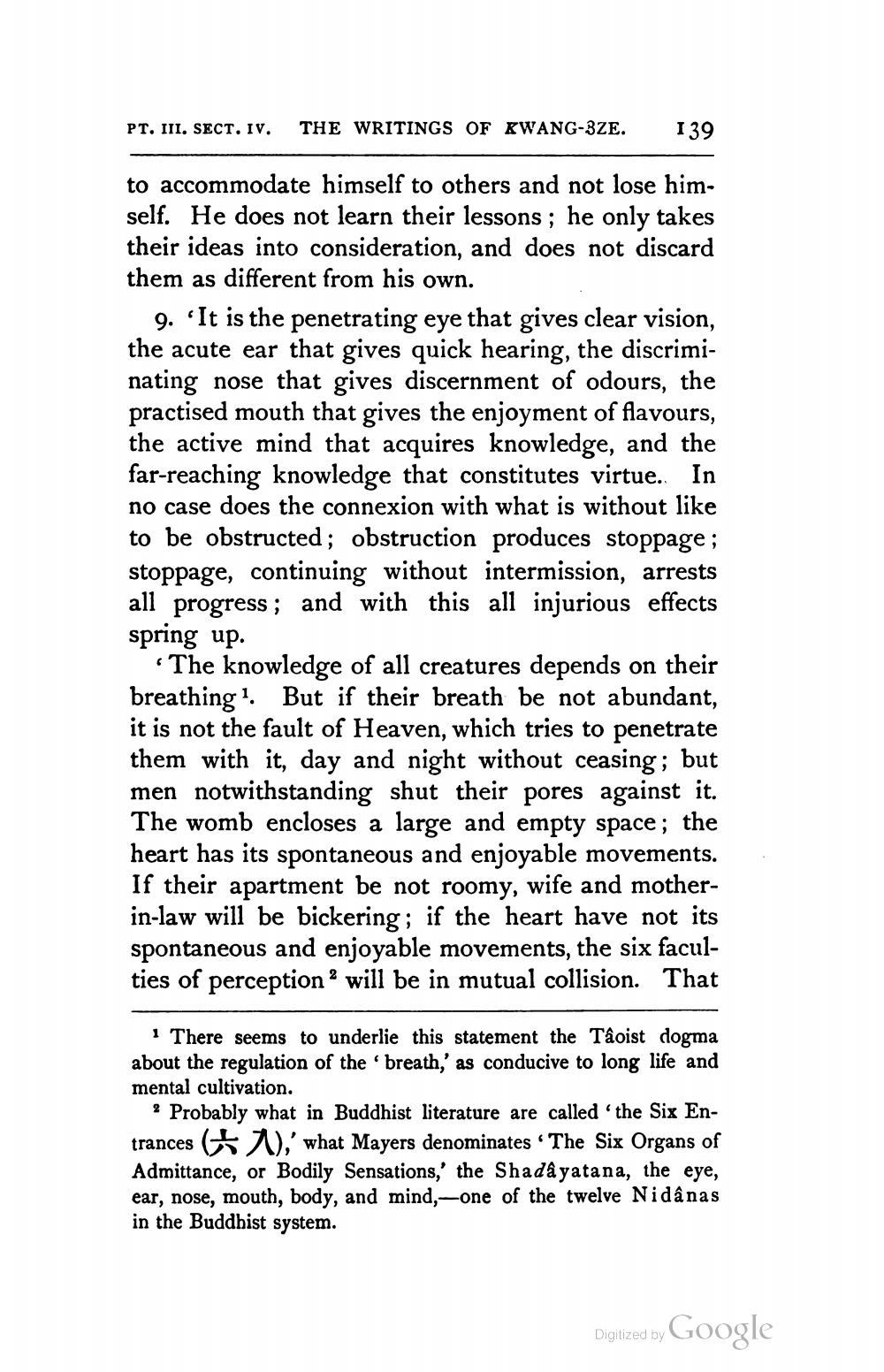________________
PT. III. SECT. IV. THE WRITINGS OF KWANG-3ZE.
139
to accommodate himself to others and not lose himself. He does not learn their lessons; he only takes their ideas into consideration, and does not discard them as different from his own.
9. 'It is the penetrating eye that gives clear vision, the acute ear that gives quick hearing, the discriminating nose that gives discernment of odours, the practised mouth that gives the enjoyment of flavours, the active mind that acquires knowledge, and the far-reaching knowledge that constitutes virtue. In no case does the connexion with what is without like to be obstructed; obstruction produces stoppage; stoppage, continuing without intermission, arrests all progress; and with this all injurious effects spring up.
'The knowledge of all creatures depends on their breathing1. But if their breath be not abundant, it is not the fault of Heaven, which tries to penetrate them with it, day and night without ceasing; but men notwithstanding shut their pores against it. The womb encloses a large and empty space; the heart has its spontaneous and enjoyable movements. If their apartment be not roomy, wife and motherin-law will be bickering; if the heart have not its spontaneous and enjoyable movements, the six faculties of perception will be in mutual collision. That
There seems to underlie this statement the Tâoist dogma about the regulation of the 'breath,' as conducive to long life and mental cultivation.
? Probably what in Buddhist literature are called 'the Six Entrances),' what Mayers denominates The Six Organs of Admittance, or Bodily Sensations,' the Shadâyatana, the eye, ear, nose, mouth, body, and mind,-one of the twelve Nidânas in the Buddhist system.
Digitized by Google




